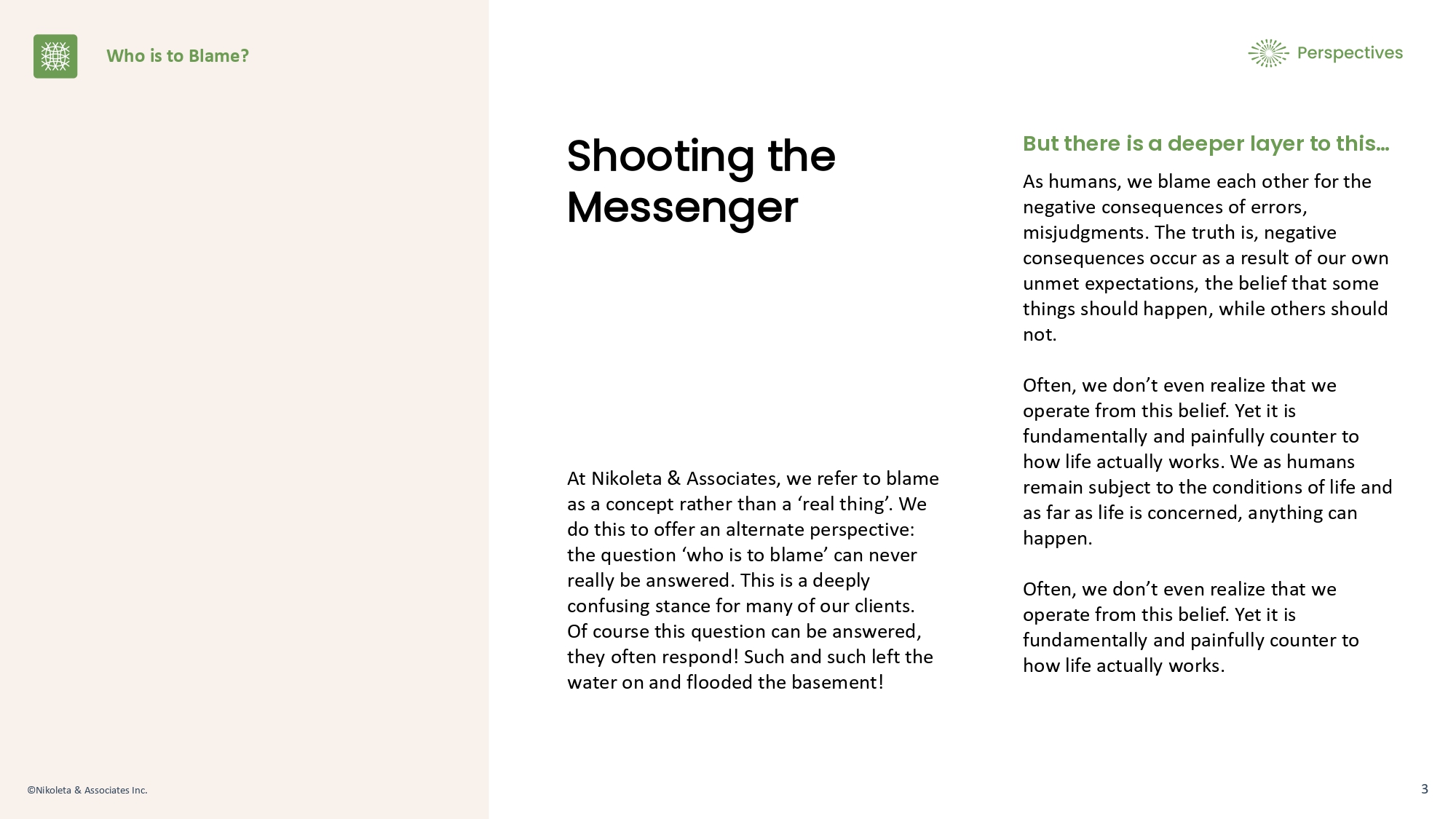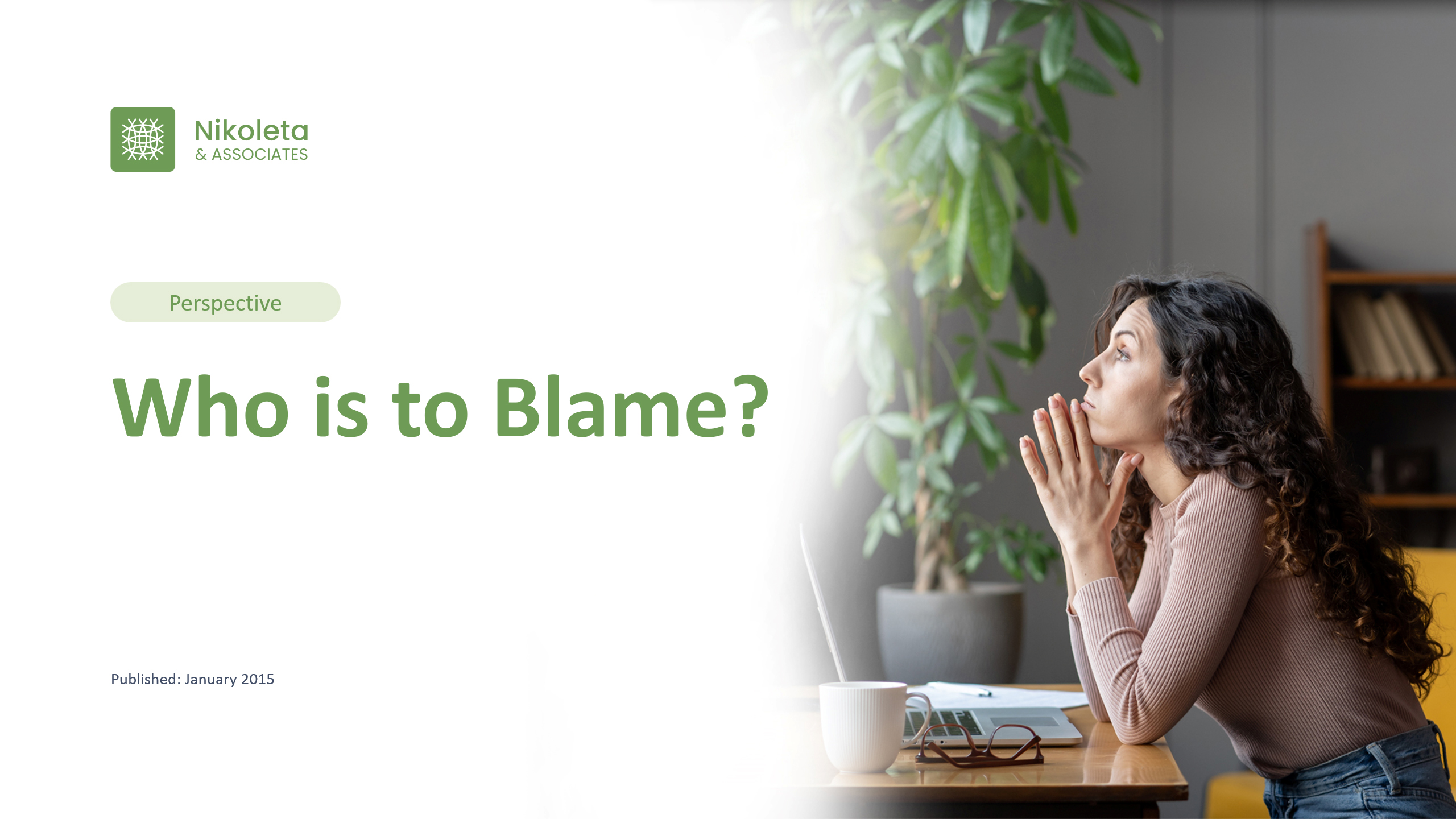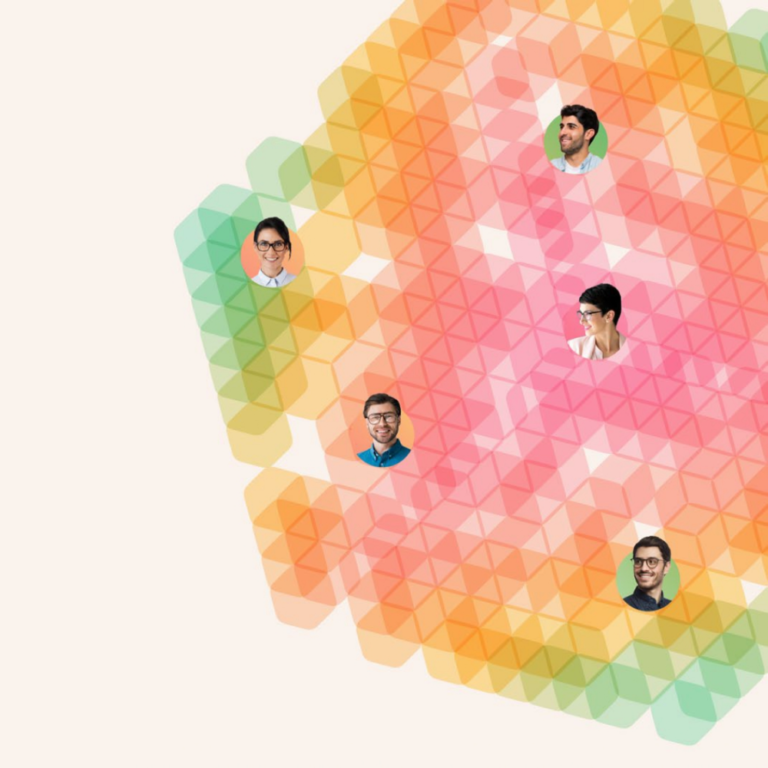Perspective
Who is to Blame?


One of our core operating principles is “We are more similar than different”.
We meet people where they are and celebrate our clients, our partners, and ourselves as humans first – messy, sometimes disconnected beings with no inherent flaws and nothing to fix.
We are all humans trying to understand and move forward with the information we have at the time. With this in mind, the concept of blame arises regularly in our work with individuals and organizations. In business, politics, and families, whenever things do not go according to plan, we find many people get busy investigating the cause and assigning blame. People want someone to be responsible, whether it’s the leader of the company, a colleague, or a family member. In this Perspective, we illuminate some of the underpinnings of blame and offer some ways to heal it, both in your organization and yourself.
Shooting the Messenger
At Nikoleta & Associates, we refer to blame as a concept rather than a ‘real thing’. We do this to offer an alternate perspective: the question ‘who is to blame’ can never really be answered. This is a deeply confusing stance for many of our clients. Of course this question can be answered, they often respond! Such and such left the water on and flooded the basement!
But there is a deeper layer to this…
As humans, we blame each other for the negative consequences of errors, misjudgments. The truth is, negative consequences occur as a result of our own unmet expectations, the belief that some things should happen, while others should not. Often, we don’t even realize that we operate from this belief. Yet it is fundamentally and painfully counter to how life actually works. We as humans remain subject to the conditions of life and as far as life is concerned, anything can happen.
Life itself does not operate according to any sort of moral code. This is why infants die of ravaging diseases and how a man can be eaten by a shark on his honeymoon.
At no point does life step in and stop these events because they are terrible and should not happen. The idea that something ‘should not happen’ is just that: an idea, invented by humans, one which life flagrantly and consistently ignores. Since we can’t get our hands on life to exact revenge or demand accountability or at the very least a say, we blame people.
But when you assign blame to another human being for something brought about by the natural ebbs and flows of life, you give them power they do not have. Humans do not control life; therefore, humans cannot be held responsible for life.
Wait. What?
So, what are we saying? Is no one responsible for their actions? Are we advocating a blameless society wherein folks do as they please with impunity?
Of course not.
We do, however, advocate for a culture wherein life is understood as what it is: something we do not control. Certain actions definitely do not work; it’s appropriate to call these actions out and redirect them wherever possible. It is not necessary, however, to blame people and make them wrong. Just as humans cannot stop the earth from spinning its course around the sun, humans cannot stop life from taking a turn, for better or worse, in an unforeseen direction, despite their best efforts and intentions.
Pain at the Root
While blame may not be a real thing, in many organizations we have worked with, it remains a powerful force that slowly poisons the culture if left unaddressed. Blame links strongly to competition, ego positioning and the aforementioned belief in one’s ability to avoid all of the ‘should not happens,’ all of the time.
Often, the desire to continue looking good under any and all circumstances leads individuals to duck and deflect rather than taking a deeper look at why blame exists. Why do we believe that someone must be at fault in the first place? How did we become so out-of-step with life?
Here’s what we have learned:
A victim mentality weaves throughout our societal fabric. This attitude views life as an attack. Even when a person appears very confident, their internal world can be fraught with guilt over imaginary wrongdoings: Did I get it right? Did I do something wrong? When am I going to get caught? Invariably, blame is the companion to guilt. If you have no authority in the matter, it can’t possibly be your fault. A blaming culture tends to squelch innovation and suppress creativity; both of these states require a healthy relationship with risk, which cannot exist in a culture where everyone is afraid and no one is empowered. After enough time, a blaming culture tends to lead to an exodus of folks aspiring to self-authorization, as they tend to thrive when there is freedom to risk and not a pervasive fear of collaboration.
Organizations will then be left with victims playing the blame game, and those who are indifferent and simply pulling down a paycheck. Consider an alternative view: life is a roller coaster ride, and we are strapped in. The only way off the ride is death. We have a choice, to authorize ourselves to enjoy that ride as much as we can, learn, and scream our lungs out with glee, or view the ride as punishment and screech with terror from birth onwards.















